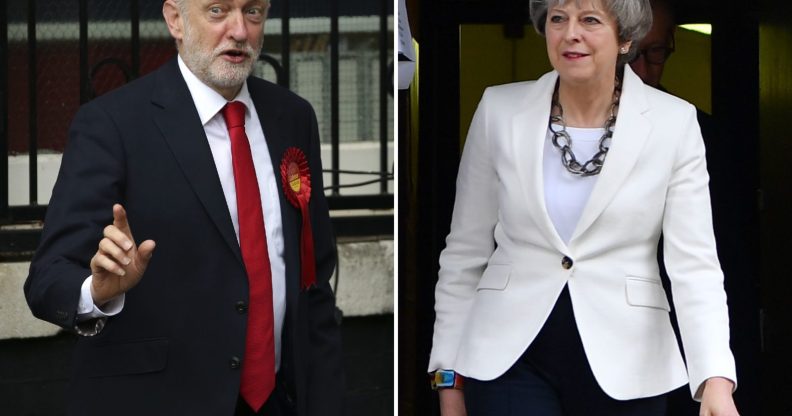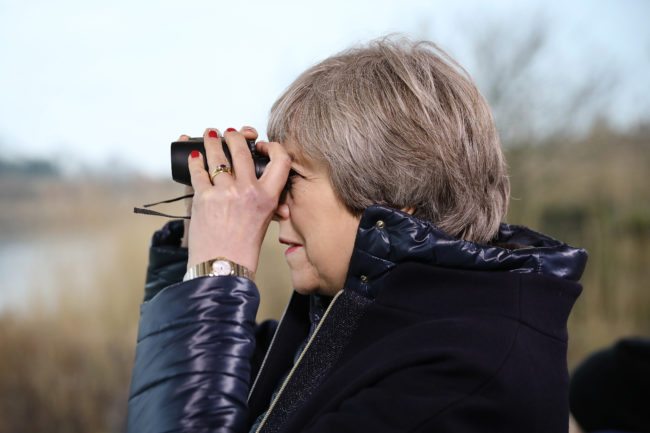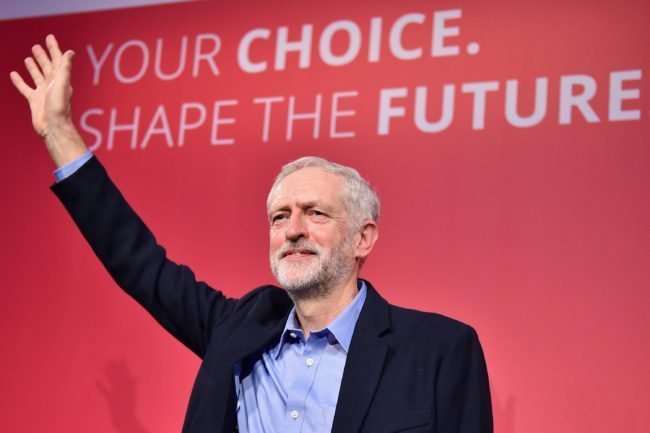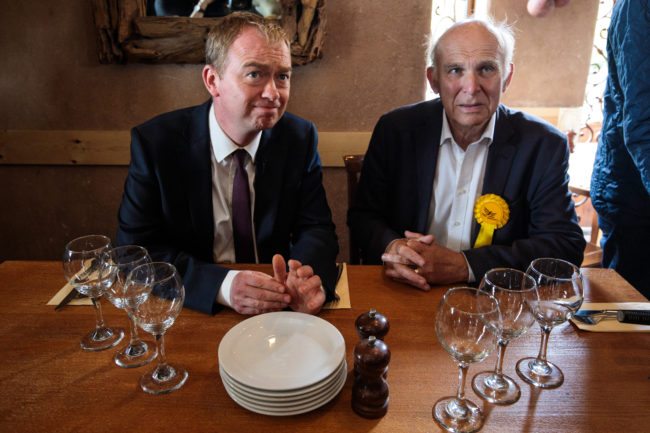Same-sex marriage: Here’s how Theresa May and Jeremy Corbyn’s teams voted on equal marriage

This combination picture shows opposition Labour party leader Jeremy Corbyn (L) voting in north London and British Prime Minister Theresa May voting in Maidenhead on June 8, 2017 during
It’s been five years since the UK Parliament voted for same-sex marriage – and here’s how the current Cabinet voted.
MPs were given a free vote on the Marriage (Same Sex Couples) Bill, which passed its second reading by a vote of 400 to 175 on February 5, 2013.
It remains the last time a free vote was held in Parliament on a major LGBT issue – and is often used as an indicator of politicians’ stances on LGBT equality.
Many of the figures who now dominate British politics were at the time little-known junior ministers or backbench MPs.
So how did the politicians of today vote?
Conservatives

British Prime Minister Theresa May (Photo by Dan Kitwood – WPA Pool/Getty Images)
Prime Minister Theresa May strongly supported the legislation as Home Secretary, backing then-Lib Dem minister Baroness Featherstone’s attempts to put the issue on the table for the first time.
But Conservative MPs were split on the issue, with more than half casting their own votes against. At the time, such public divisions in the Conservative Party were much rarer than they are today – making the vote one of the only times that David Cameron faced such a large rebellion from his own MPs.
Mrs May’s current cabinet includes many more supporters of equality than opponents – though a number of the Cabinet’s most hardline Brexiters voted against.
Five years on, here is how her Cabinet voted:
| MP | Role | Vote |
| Theresa May | Prime Minister | Yes |
| Philip Hammond | Chancellor | Abstained |
| Amber Rudd | Home Secretary | Yes |
| Boris Johnson | Foreign Secretary | Supported – not in Parliament |
| David Davis | Brexit Secretary | No |
| Gavin Williamson | Defence Secretary | No |
| Jeremy Hunt | Health Secretary | Yes |
| David Gauke | Justice Secretary | Yes |
| Greg Clark | Business Secretary | Yes |
| Damian Hinds | Education Secretary | Yes |
| Michael Gove | Environment Secretary | Yes |
| Dr Liam Fox | International Trade | No |
| Penny Mordaunt | International Development | Yes |
| Matt Hancock | Culture Secretary | Yes |
| Chris Grayling | Transport Secretary | Yes |
| Esther McVey | Work and Pensions Secretary | No |
| Sajid Javid | Communities & Local Government Secretary | Yes |
| Brandon Lewis | Minister without Portfolio | Yes |
| Karen Bradley | Northern Ireland Secretary | Yes |
| Alun Cairns | Welsh Secretary | No |
| David Mundell | Scotland Secretary | Yes |
| David Lidington | Minister for the Cabinet Office | No |
| Baroness Evans of Bowes Park | Lords Leader | Not in Parliament |
| Also attending cabinet | ||
| Andrea Leadsom | Commons Leader | Abstained |
| Liz Truss | Chief Secretary to the Treasury | Yes |
| Julian Smith | Chief Whip | Yes |
| Jeremy Wright | Attorney General | No |
| Claire Perry | Minister of State for Energy | Abstained |
| Caroline Nokes | Minister of State for Immigration | No |
Labour

Jeremy Corbyn (Photo by Jeff J Mitchell/Getty Images)
A lot has changed from 2013 – not least for Labour’s Jeremy Corbyn, who has had a meteoric rise from an obscure socialist backbencher to the leader of the Party and a progressive movement in its own right.
Mr Corbyn’s top team includes many more fresher faces than the Conservatives, with a substantial number of Shadow Cabinet members who were first elected in 2015 or 2017 – well after the vote on equal marriage.
Every member of the Shadow Cabinet who was an MP in 2013 voted in favour.
| MP | Role | Vote |
| Jeremy Corbyn | Leader | Yes |
| Tom Watson | Deputy Leader | Yes |
| John McDonnell | Shadow Chancellor | Yes |
| Diane Abbott | Shadow Home Secretary | Yes |
| Emily Thornberry | Shadow Foreign Secretary | Yes |
| Rebecca Long Bailey | Shadow Business Secretary | Not in Parliament |
| Jon Ashworth | Shadow Health Secretary | Yes |
| Angela Rayner | Shadow Education Secretary | Not in Parliament |
| Kate Osamor | Shadow International Development | Not in Parliament |
| Keir Starmer | Shadow Brexit Secretary | Not in Parliament |
| Richard Burgon | Shadow Justice Secretary | Not in Parliament |
| Sue Hayman | Shadow Environment Secretary | Not in Parliament |
| Cat Smith | Shadow Youth Engagement | Not in Parliament |
| Baroness Smith | Shadow Lords Leader | Yes |
| Valerie Vaz | Shadow Commons Leader | Yes |
| Jon Trickett |
Shadow Minister for the Cabinet Office
|
|
| John Healey | Shadow Housing Secretary | Yes |
| Debbie Abrahams | Shadow Work and Pensions Secretary | Yes |
| Andrew Gwynne | Shadow Communities & Local Government | Yes |
| Peter Dowd | Shadow Chief Secretary to the Treasury | Not in Parliament |
| Andy McDonald | Shadow Transport Secretary | Yes |
| Nick Brown | Chief Whip | Yes |
| Nia Griffith | Shadow Defence Secretary | Yes |
| Shami Chakrabarti | Shadow Attorney General | Not in Parliament |
| Barry Gardiner | Shadow International Trade | Yes |
| Barbara Keeley | Shadow Minister for Social Care | Yes |
| Lesley Laird | Shadow Scotland Secretary | Not in Parliament |
| Christina Rees | Shadow Welsh Secretary | Not in Parliament |
| Owen Smith | Shadow Northern Ireland Secretary | Yes |
| Dawn Butler | Shadow Equalities Minister | Not in Parliament |
Smaller parties
Equal marriage also enjoyed support from the smaller parties that make up the Commons.
Lib Dem leader Sir Vince Cable voted in favour, as did the few members of his top team who have survived the near-collapse of the party’s Parliamentary base since 2013.

Liberal Democrats Sir Vince Cable and Tim Farron (Photo by Jack Taylor/Getty Images)
Tom Brake, Ed Davey, Alistair Carmichael, Jo Swinson and Stephen Lloyd all voted in favour of equality, while former leader Tim Farron voted a mixture of for and against.
The Green Party’s co-leader Caroline Lucas voted in favour.
Plaid Cymru’s Westminster leader Liz Saville Roberts was not in Parliament, though the two remaining Plaid MPs from the time, Jonathan Edwards and Hywel Williams, voted in favour.
The SNP abstained on the issue, due to separate legislation in Scotland.
All of the Democratic Unionist Party’s MPs voted against the legislation.
Related: It’s been five years since the House of Commons voted for equal marriage.

